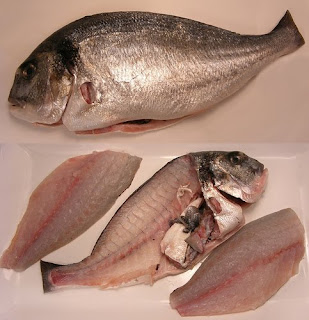Open Ocean Aquaculture Debate

A well thought out plan to farm native species fish in open ocean pens in United States waters could be a solution to more than one problem facing us today. Or it could be the worst idea to come since we allowed untreated waste to be dumped into the water from heavy manufacturing.
Pros
- Reduces the need to consume wild caught food fish.
- Creates much needed employment in coastal communities.
- Promotes innovation and technology.
- Reduces dependency on imported aquaculture.
- Waste from fish farming impacts local ecology.
- Greater demand on wild forage fish as food for aquaculture fish.
- Disease and escapement jeopardize wild stock.
- Creates confusion in the market with identical wild and farmed fish species.
related articles:
Study fish-farming plan carefully


Comments
fishmonger ran
Delighted you have insight to raise open ocean aquaculture (OOA) as a subject to discuss.
Let’s back up a bit.
• Given: The ocean is critical to our planet’s – and, therefore, our own well-being. It is home to 90% of the world’s living creatures, with seafood serving as the main source of protein for one-sixth of the human population. With over 75% of world fish stocks fully or over-exploited, we are depleting the fish and other marine life that we eat faster than their populations can replenish.
• Given: Commercial fishermen are scooping up everything that's edible (and a lot of what's not). Couple that trend with the effects of global warming, and the situation has become so dire that some scientists think seafood stocks will totally collapse by 2048.
• Given: Aquaculture would seem the answer, but it has its own problems. Farmed fish can be lower in nutrients, and sometimes even dyed with color to appear edible. The farms themselves, being monocultures, can be havens for disease, so they are sometimes infused with prophylactic antibiotics, anti-parasitical and antifungal agents. Those contaminants and the concentration of feces make poorly monitored shoreline farms devastating to the environment, harmful to fish and to fish consumers.
• The photo displayed and talk of open ocean farming in the Gulf of Mexico should raise concerns. Certain basic conditions must be met for OOA to reach its potential to provide a sustainable supply of healthy, nutritious and delicious seafood without damaging the oceans nor its stakeholders.
• Basic to OOA success is that fish stock must be cultivated & submerged far offshore in the open ocean and raised in strong & continuous flows of pristine open ocean waters that have not been impacted or influenced by land, near shore aquaculture or nearby OOA activity. Without this mandatory requirement, what you are left with is a fish story - see photo.
• I work with Open Blue Sea Farms, a proven OOA enterprise; there are a few other OOA entrepreneurial enterprise in the world & possibly 1 or 2 others cultivating & selling seafood.
• Plan A to meet our hungry world’s increasing demand/supply seafood gap, that will worsen as population spikes, is OOA. OOA will satiate our appetites without poisoning the environment or us. Right now, there is no Plan B.